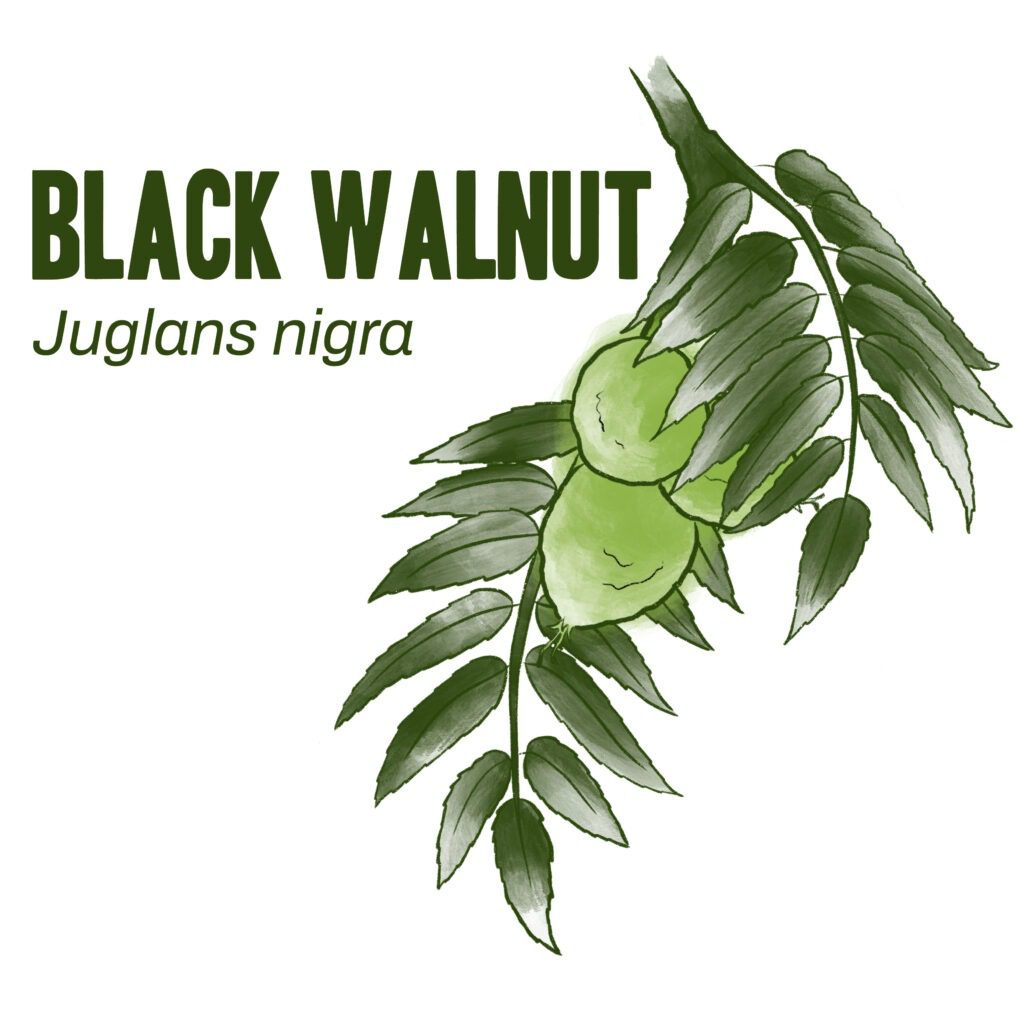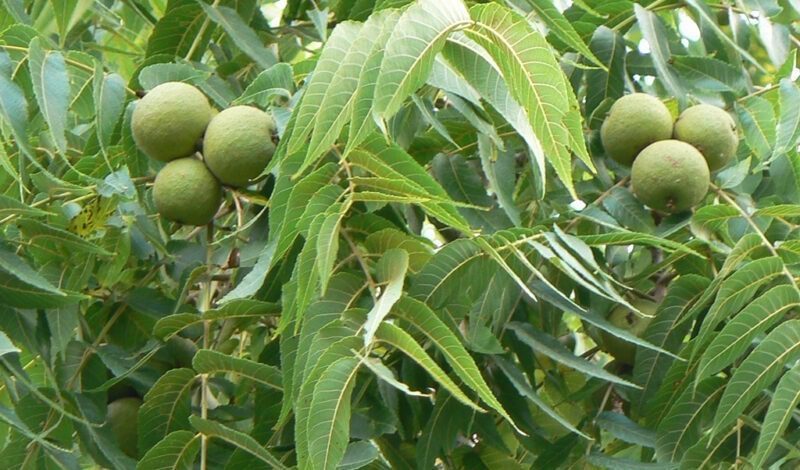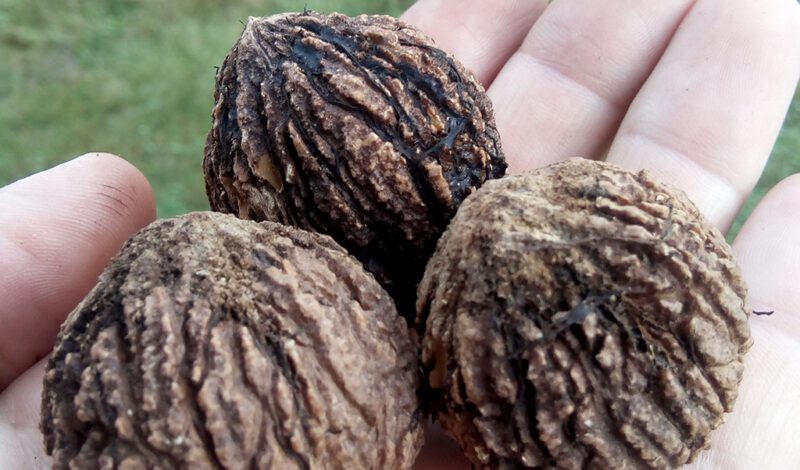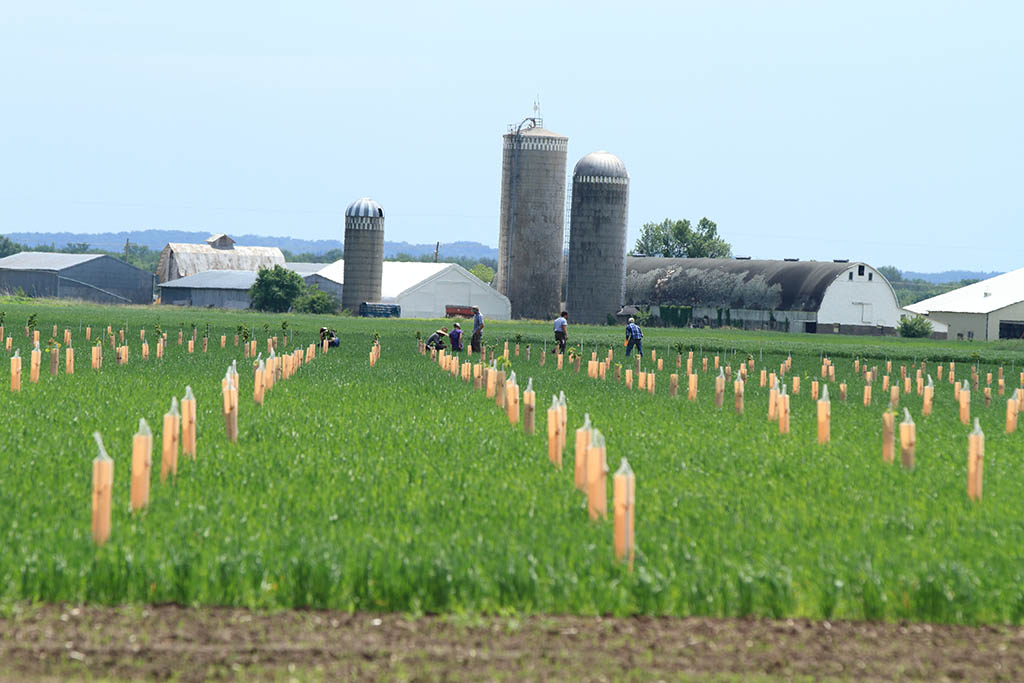
Black Walnut
Juglans nigra
Black walnut trees produce valuable timber and nuts. Its dappled shade and deep tap root system make it a complimentary crop for agroforestry systems.
DRAINAGE: Well-drained soils
LIGHT: Full sun
ZONES: 4–9
SPACING: 30 x 30 ft for nut production
YEARS TO PARTIAL/FULL BEARING: 4–7
HARVEST SEASON: September–October
Opportunities
Black walnut is an excellent tree for silvopastures stocked with sheep or cattle, where trees can increase forage quality and animal comfort. It is also a valuable timber crop, although growers tend to focus on either nut production or timber from black walnut due to different management requirements.
Challenges
Nut production in orchards can be challenging to make profitable unless you process nuts, which requires hulling, cracking and sorting equipment. Needs more market growth for nut production to be profitable.
Management
Black walnuts can self-pollinate, but it is recommended that at least four varieties with overlapping flowering dates can be planted to increase nut set. Anthracnose is a disease that can defoliate trees and cause a drop in nut production — it can be controlled through fungicide application post pollination. Prune in late winter to help create strong trunks and promote greater leaf area. Common sense precautions, as well as legal regulations, govern best practices to prevent livestock manure from contaminating fruit for human consumption.
Our Research
Fields Restored Demonstration Farm added black walnut to a 13-acre silvopasture by addition experiment. The “tree islands” planted in pasture feature three sizes of five different species combinations: speckled alder, speckled alder and black walnut, black walnut, hybrid poplar, and native species mix.



RESOURCE
Black Walnut Grower Infosheet
- Review more basic grower information about plant selection and management.
- See an economics case study and find more sources for information.
- You can also print this handout to use at educational events or for outreach.


One-On-One Support for Farm Planning
Technical Assistance Program
Get help planning your perennial farm system. Our Technical Assistance Program is here to guide you through the process of planning, funding, and planting trees on your farm.

Looking For Plants?
Canopy’s Nursery offers plant material in your region. Find chestnut, walnut, pecan, hazelnut, heartnut, persimmon, pawpaw, black currant, and elderberry for order in their online store. Not only does Canopy increase the availability of high-quality plant material in the region, it also donates part of its proceeds to Savanna Institute’s nonprofit research and education mission.

